The Agenda 👇
My wife Laetitia spoke with author Deborah Copaken about healthcare in America 🎧
Fragmentation has long been a downside for Europe. Can it make us more productive?
There’s a lot to learn from institutional investors and how they allocate capital
There are many problems to solve before Europe can attract foreign talent
Today’s episode of Building Bridges is my wife Laetitia Vitaud’s conversation with Deborah Copaken, a best-selling author and screenwriter who shared her experience with the healthcare system in America.
I’ve been writing about economic security almost forever, insisting on the importance of providing a well-functioning safety net to foster a more entrepreneurial society. For more on that, see my book Hedge as well as this compilation of related essays: All About the Gig Economy.
Indeed, the idea of widespread instability is an integral part of what the Entrepreneurial Age is about. The lifespan of companies is getting shorter and shorter due to the acceleration of technological change; corporations have less ability to provide their employees with stability; in turn, these employees decide to break free and go on the hunt, enjoying the upside of flexibility from a worker’s perspective.
What Deborah Copaken reminds me in her conversation with Laetitia is that this kind of instability determined many of her career choices as a woman working in the media industry in the US. Because the US provides affordable healthcare only to those who are employed in a steady job, at many times in her life she had to give up on what she really wanted to secure access to proper healthcare coverage. And because she’s a woman, she’s also experienced the sexism of the healthcare system at every turn.
Deborah’s story is the perfect illustration of the point I make in Hedge: creators, like innovators, need a better safety net to work their magic! In a world of instability, this net is what makes risk-taking possible.
Deborah and Laetitia’s conversation is a must-listen. In addition to just how critical economic security is so that people can move forward and take more risks, you will also hear about:
Being part of the writing team of the popular Netflix series Emily in Paris, and drawing on Deborah’s own experience of cross-cultural issues to enrich the script.
What it was like for Deborah to live in Paris for a time when she began her career as a photojournalist—and the sexism she has had to fight ever since in the media industry.
What it’s like to have to deal with the US healthcare system when your life's in danger and you need thorough examinations and emergency procedures.
The reality of a life on the edge and having to deal with multiple risks and constraints at every turn—as is too often the case for people who embrace creativity as a career.
👉 Listen to Laetitia’s conversation with Deborah Copaken in the latest episode of the Building Bridges podcast using the player above 👆 or on Apple Podcasts or Spotify.
🇪🇺 Productive Fragmentation
Here’s an idea that matters in Europe: creating spaces where people can come together, regardless of their ‘native’ culture and language, in no way negates the individual experiences of any given country. Nor does the idea of pooling resources mean ending in-group competition; indeed, finding the right balance among these various needs is key to what we can think of as ‘productive fragmentation’.
I’ve been reminded of this quite often lately, in contexts ranging from Netflix’s excellent Drive to Survive series about Formula One to my recent podcast discussion with economist Noah Smith. While Europe certainly has the fragmentation part of the equation down, it hasn’t found the proper way to use that fragmentation to encourage value creation in the Entrepreneurial Age.
That doesn’t have to remain the case, however. When I spoke with Chinese Characteristics writer Lillian Li about the situation in China, she noted the high degree of internal competition and decentralized autonomy there, with Beijing competing against Shanghai and Shenzhen and more for talent and results. That competition, however, tends to end with one proven winner, suggesting that fragmentation is an advantage when starting businesses, before eventually being reined in during the scaling up phase. Could Europe find a new configuration in which that is possible?
👉 I try to bring a complicated and broad topic into better focus in Productive Fragmentation.
⏳ All About Multi-Asset Allocation
While retail investors grab the headlines (as we saw with the Gamestop saga, for example), institutional investors are a better indicator of where things are headed over the long term. Indeed, their job is allocating vast amounts of money across various asset classes, including stocks, bonds, commodities, foreign currencies, real estate, hedge funds, private equity—and, yes, venture capital. Therefore it’s a very good idea to keep an eye on how they’re directing those capital flows.
Today, there are several levers that can be pulled, especially in Europe, in order to facilitate the growth of venture capital by making it a more attractive part of a multi-asset strategy from an institutional perspective. Israel’s Yozma program is a good example of how to do it well, while numerous Asian countries have had their own approach. One key, no matter what a given country decides, is to remember that it is critical to provide viable ways to show that liquidity is coming.
👉 Delve into the history of the subject as well as the current state of affairs in All About Multi-Asset Allocation.
🧲 Attracting Talent in Europe
In our times of transition, it’s only natural for people to move about in search of opportunity. Yet for all the talk about how nomadism is growing as a viable option, moving from one place to another is still very difficult, particularly for anyone who isn’t all on their own.
And so while many, including policymakers, recognize the potential benefits that can come from having talent choose their city or country as a new place to live, very little attention is paid to the real issues that block people from moving. These aren’t just related to administrative technicalities such as a visa; instead, the most difficult ones are related to very practical needs such as finding a home, opening a bank account, even getting a cellphone.
In Europe, there is also the language issue, since there are very few places where speaking English in the workplace is the norm, to say nothing of one’s daily life dealing with schools, shopping, interactions with neighbors, etc. While none of these problems are insurmountable, they are all critical and they all build upon one another. Solving the question of how to attract more talent will mean going far beyond quick administrative fixes, and towards a much broader buy-in on the part of society at large.
👉 My Tuesday thread this week sprang from a podcast discussion with Laetitia, resulting in Attracting Talent in Europe.
Sounds interesting? Subscribe to European Straits and let me know what you think!
🛠 In my latest contribution to The Family’s daily newsletter, I highlight an overlooked discipline in the startup world: product management. Check out A key part of your startup team.
🇫🇷 More podcasts with Laetitia on Nouveau Départ (in 🇫🇷)! Check out yesterday’s edition on Économie du football : la transition ? ⚽ as well as last week’s episode on Nomadisme en famille : pas si facile ! Also make sure to give a listen to Laetitia’s conversation with Marylène Patou-Mathis about the prehistory of women: La femme préhistorique gagne à être connue.
From The Bright Future of Craftsmanship (September 2018):
What does the future hold? If the key to individual happiness is no longer a work contract, then we must reinvent what work is about, and Laetitia thinks it should revolve around the values and principles of craftsmanship—autonomy, responsibility, and creativity. Hence the title of the book: Du Labeur (“From Labor...”, which denotes routine, alienation, and pain)... à l’ouvrage (“...to Craftsmanship”, which is all about self-determination, fulfillment, connections...and uncertainty). The norm used to be about being alienated along assembly lines while enjoying “the bundle”. Tomorrow, the norm might be about working on our own, just like craftsmen, yet being connected to others through networks.
All recent editions:
Attracting Talent in Europe—for subscribers only.
All About Multi-Asset Allocation—for subscribers only.
Productive Fragmentation—for subscribers only.
Chinese Tech w/ Lillian Li. Founder Control w/ Bill Janeway. Daniel Ek, Arsenal & the Super League.—for everyone.
A Thread on the Super League—for subscribers only.
All About Founders Being in Control—for subscribers only.
Bill Janeway on Who Should Be in Control—for everyone.
Productive Disagreements w/ Ian Leslie. Restructuring. Taxation. Velocity in VC.—for everyone.
European Straits is a 4-email-a-week product, and all essays are subscriber-only (with rare exceptions). Join us!
From Munich, Germany 🇩🇪
Nicolas




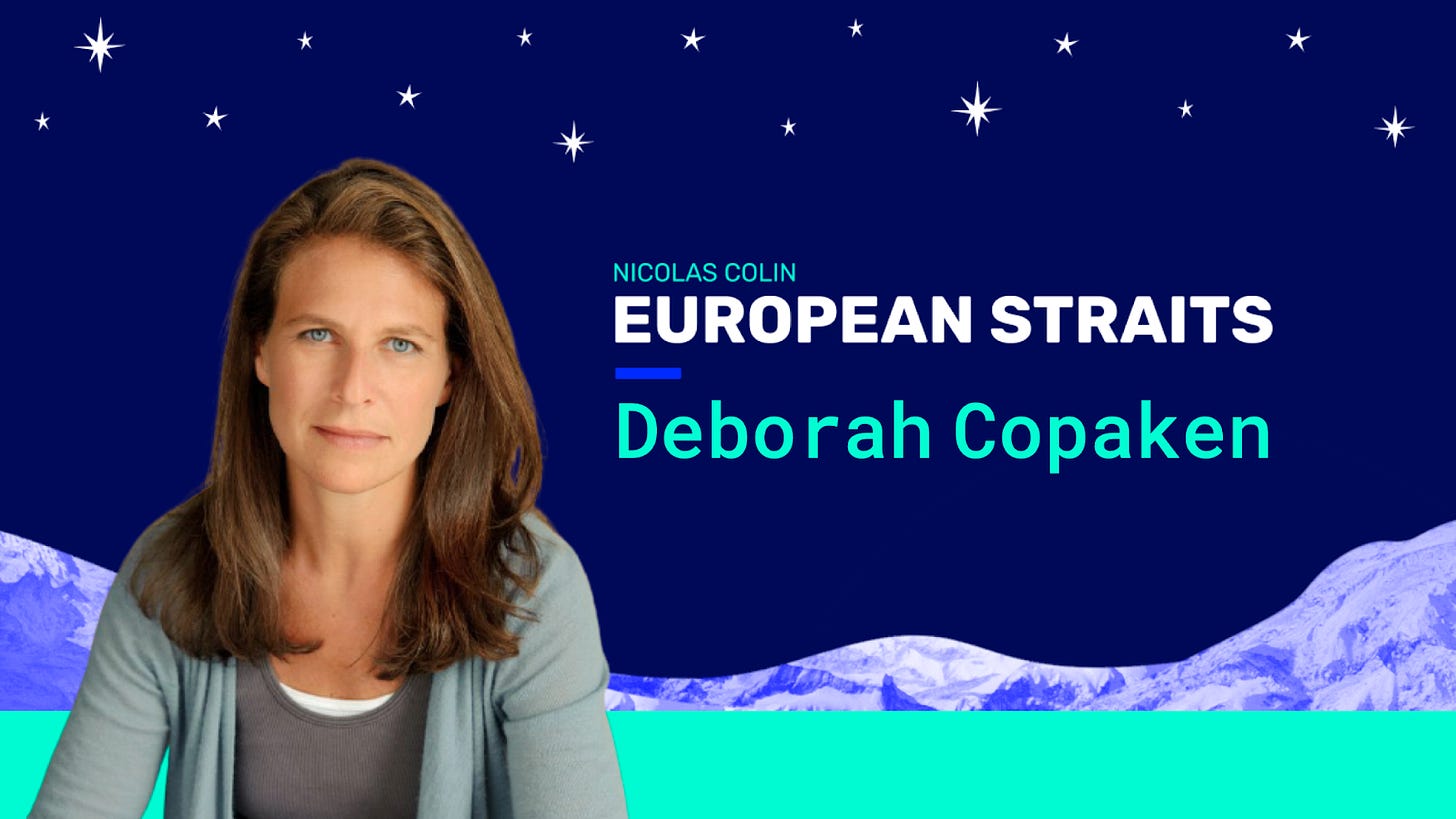







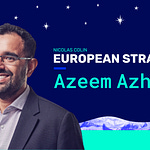
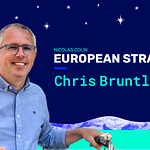
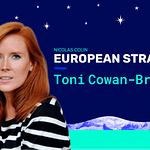
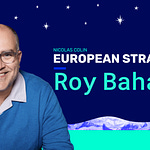
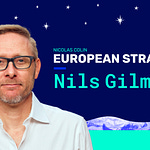
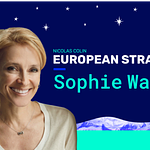
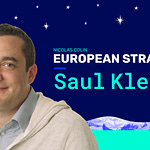
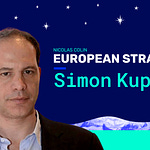
Economic Insecurity w/ Deborah Copaken. Productive Fragmentation. Multi-Asset. Talent.